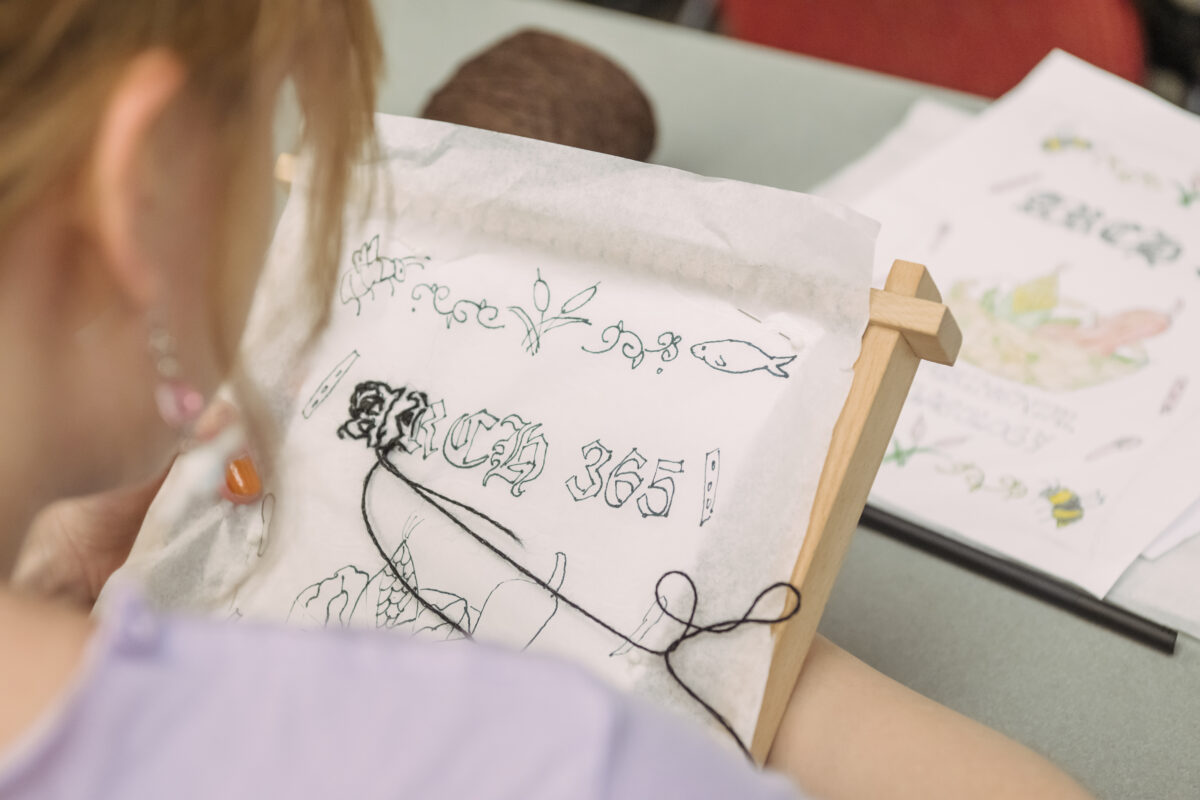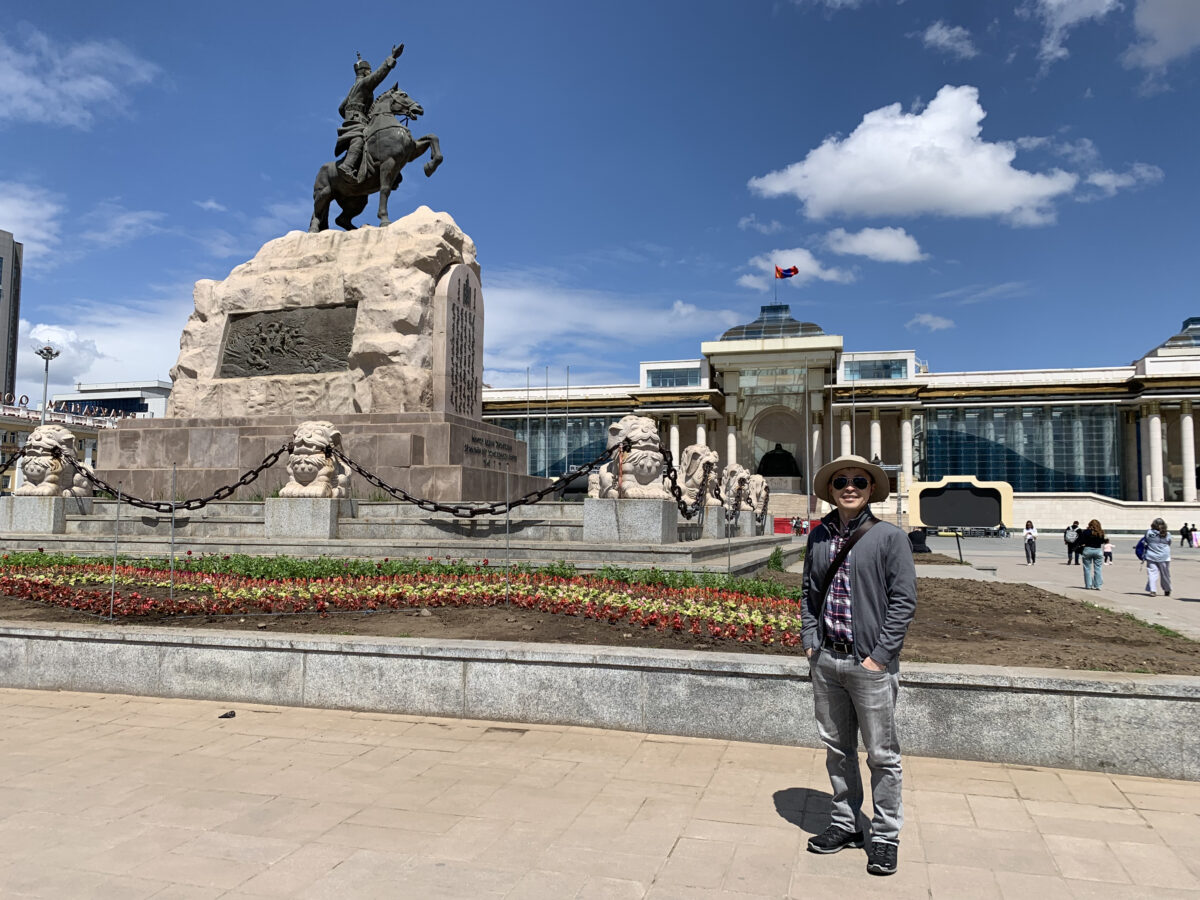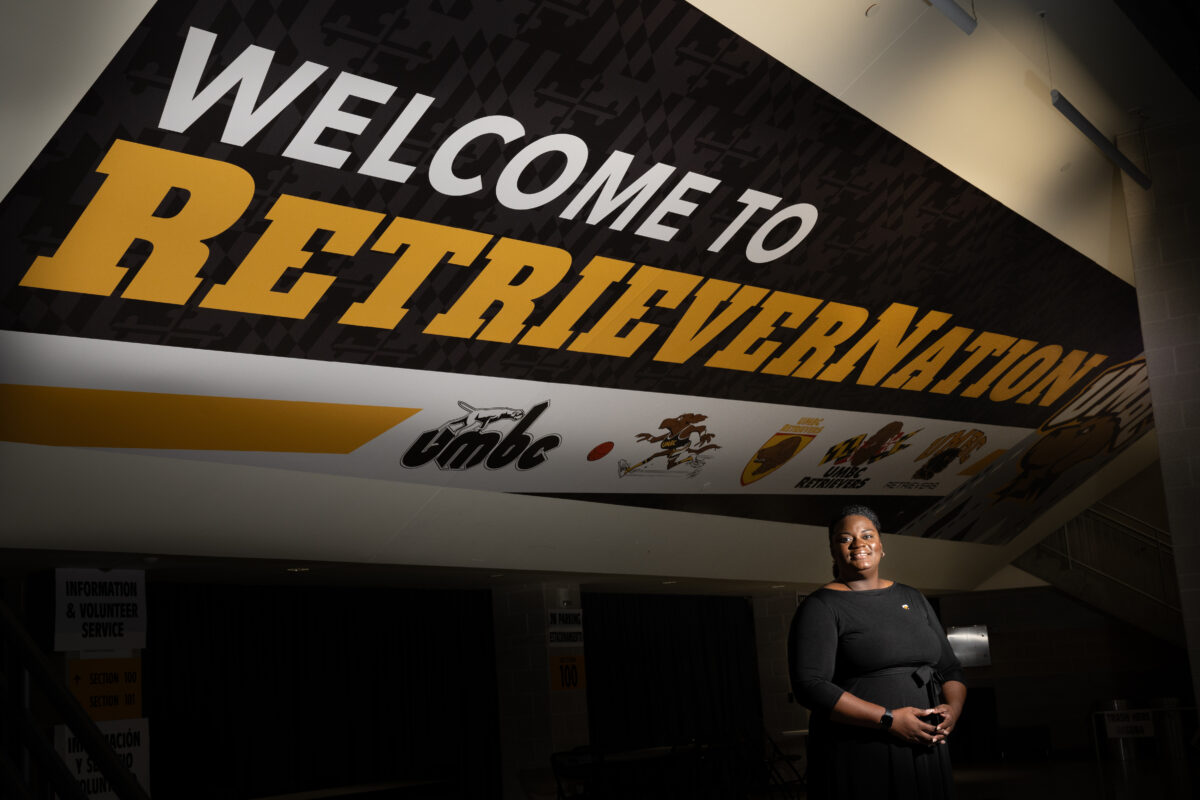Gaming Gets Real
UMBC competes in the “final four” of game development at the Microsoft Imagine Cup.
In a year of tremendous success in national competition — with UMBC teams vying for titles in the “final four” of men’s soccer and chess — another team of talented UMBC students is heading to a U.S. championship, this time in video game development. Microsoft is flying four Retrievers to San Francisco, where they will pitch their project to Silicon Valley entrepreneurs in the software giant’s Imagine Cup worldwide technology competition.
UMBC’s students will compete against teams from the Rochester Institute of Technology, University of Houston and University of Southern California. The team that claims the national championship will compete internationally for the chance to bring its game to market and a prize of $50,000.
“Everybody is really excited about the game,” says Michael Leung ’16, computer science, the team’s lead, who has received congratulatory notes and well wishes from leaders across Maryland. UMBC President Freeman Hrabowski recently highlighted the team’s work in an opinion piece for CNBC, where he wrote, “As the students vie for the honor of representing the U.S. internationally, they’re also showing us the future of teaching, learning, and careers.”
The game, called HueBots, features vibrant, friendly robots of different colors designed by Erika Schumacher ’17, and animated by Jasmine Martin ’15. Both are visual arts students with an interactive media concentration. The concept, programming, and music are the work of Tad Cordle ’16, computer engineering, with assistance from Leung. The game asks players to solve a series of increasingly challenging puzzles that revolve around the bots’ affinity for color-matched objects in a maze.
“Even people who don’t like puzzle games like HueBots,” Leung shares. Martin reflects that the game is positive, friendly, fun, and engaging, in contrast to the other three games in the national finals, described with terms like “mortality,” “combat,” and “domination.”
The teammates met for the first time in Fall 2014 through UMBC’s Game Developer’s Club, mentored by computer science professor Marc Olano. Olano founded and oversees UMBC’s game development track in the computer science and electrical engineering department. He’s familiar with the Imagine Cup, having previously judged the competition’s game entries.
Leung first considered the Imagine Cup as a real possibility in September 2014, when he was blown away by the quality of Schumacher’s art. After Cordle presented HueBots as a potential project for the Game Developer’s Club, Leung asked the longtime games enthusiast to collaborate with him, as well as Schumacher and Martin, as animator, in developing the game as a four-person team.
Leung reflects that after previously seeing himself as a “lone wolf” in gaming, he now tremendously values and enjoys the collaborative team experience. He shares, “We have different talents that back each other up.”
In addition to the success that comes from harnessing their diverse skills and viewpoints, the team members say they’ve benefitted from the club and the UMBC spirit it embodies, including the passion UMBC students have for their work. The club’s orientation has grown more professional, they say, moving from a focus on gaming as a hobby to gaming as a $22 billion per year industry that is hungry for fresh talent and ideas.
Olano, who spent a recent sabbatical working on the Civilization series of strategy games in nearby Hunt Valley, praises the growth he has seen in HueBots since the team developed a prototype in the fall. “With this kind of a puzzle game, it’s hard to get it just right — not too easy and not too hard,” he says. “I think they did it.”
The team is preparing for San Francisco, where they will be judged not only on how much fun their game is to play, but also the polish of its execution and the quality of their presentation and marketing plan. The U.S. winner will receive $4,000 and national champion status for the international competition in July.
Team Huebotics is also looking further ahead toward what it will take to bring the game to market, with or without the national title. Cordle reflects that developing a business plan solidified his ambition and made his game design work more “real-world” — more focused on bringing games to players, rather than developing games as only a personal hobby. He shares, “This is a magical moment.”
Watch Team Huebotics’ Round 1 and Round 2 competition videos, and check out their game, HueBots. The national Imagine Cup competitions will be broadcast live on MSDN Channel 9 on April 23, 2015. Viewers are invited to vote for a Public Choice Award.
(04/16/2015)
© University of Maryland, Baltimore County 1000 Hilltop Circle, Baltimore, MD 21250 410-455-1000




